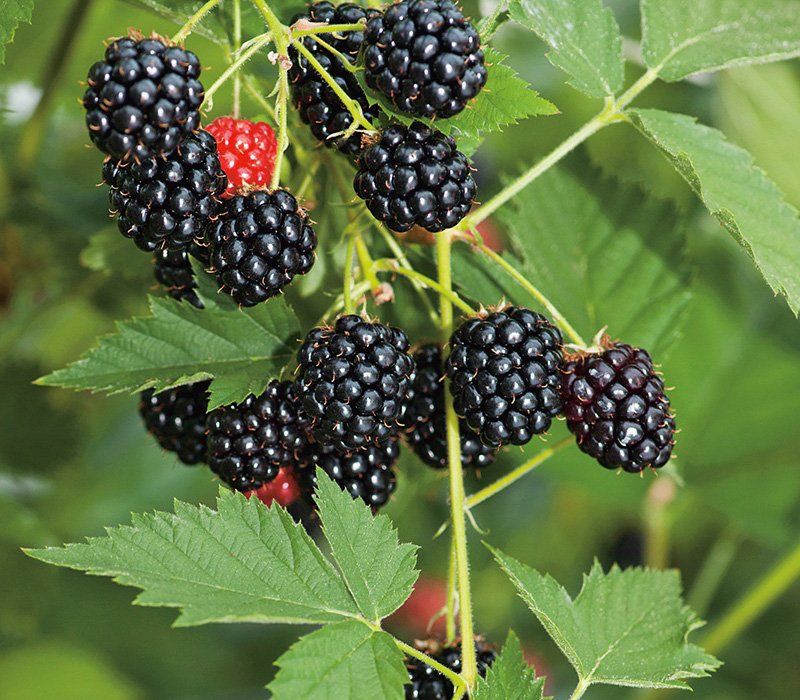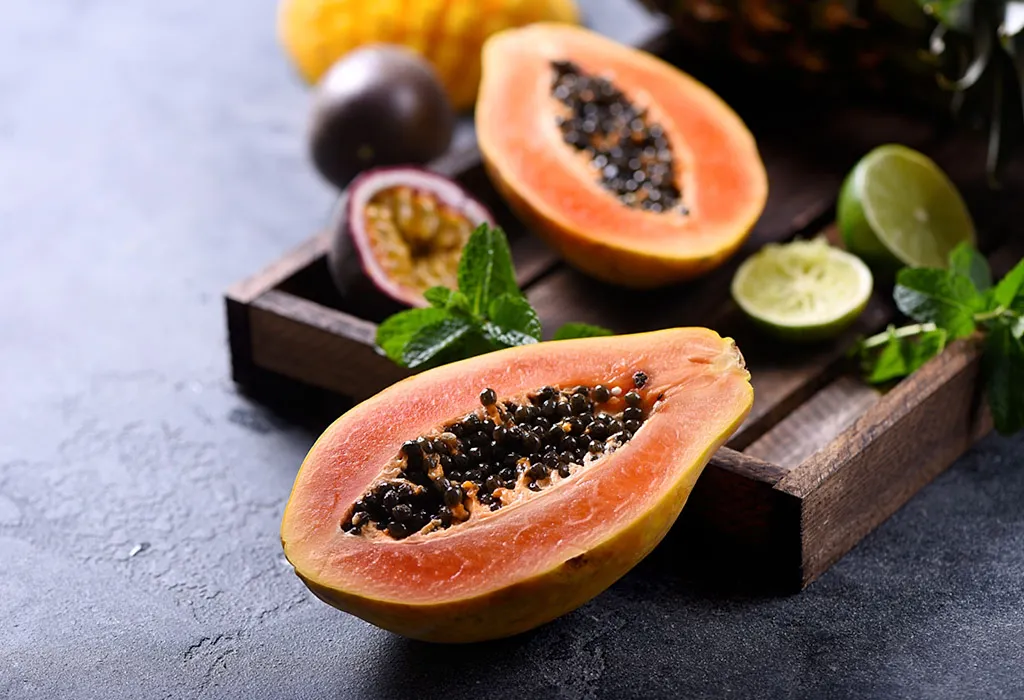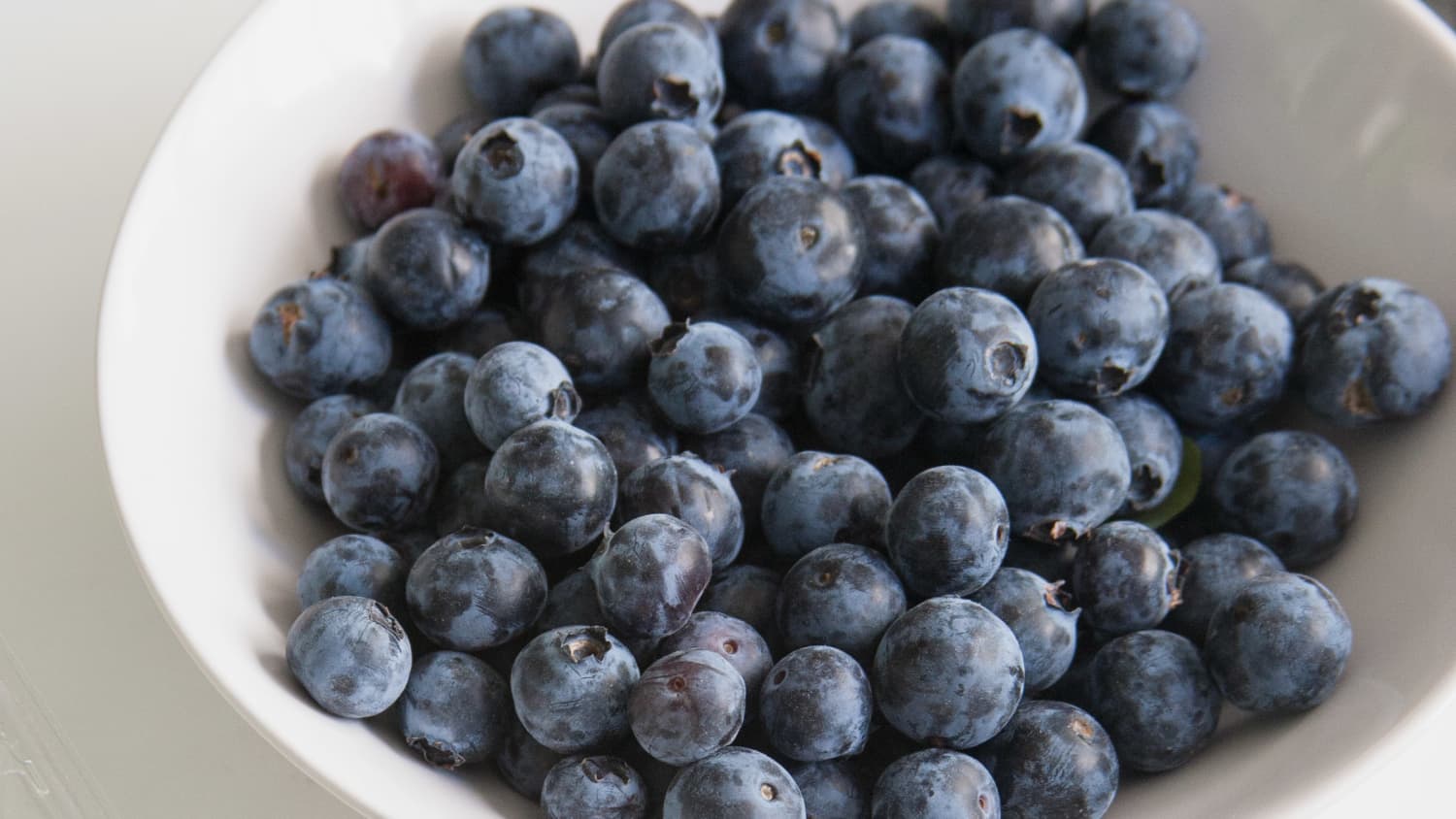According to a nutritionist and cardiac expert, eating more of these heart-healthy fruits can add years to your life.
It’s no secret that fruit is healthy and nutritious. But did you know that eating fruit can also boost your heart health and increase your lifespan? Much research, including a 2019 study published in the journal Current Medicinal Chemistry, has revealed that a diet rich in fruits, among other foods, has strong cardiovascular protective effects. Translation? Eating fruit is good for your ticker and helps prevent heart disease—the No. 1 killer globally, per the World Health Organization.
To find out which heart-healthy fruits you should include more of in your diet, we chatted with Dana Ellis Hunnes, Ph.D., M.P.H., RD, a senior cardiac dietitian at the UCLA Medical Center and author of Recipe for Survival, who shares five of her top picks. Keep reading to learn how these fruits can boost your heart health and help you live longer.
1. Blackberries

Blackberries are a delicious fruit packed with nutrients critical to heart health. One such nutrient is anthocyanins—a group of deep red, blue and purple plant pigments. Anthocyanins are rich in powerful antioxidants that support cardiovascular health. In addition, a 2021 study published in Biomolecules found anthocyanins to be an “inexpensive, accessible and effective approach” to help prevent atherosclerosis (arterial plaque buildup) and reduce the risk of cardiovascular aging and disease.
One cup of blackberries provides more than one-third of your Daily Value for vitamin C and 5% of your daily potassium intake, per the USDA—two essential nutrients for cardiovascular health.
“Blackberries are high in fiber, antioxidants, polyphenols, flavonols and water, making them incredibly healthy for your heart and gastrointestinal tract due to their antioxidant and fiber content,” says Ellis Hunnes. “Plus, they’re low in calories, filling and anti-inflammatory.”
2. Blueberries
These tiny but mighty berries are jam-packed with nutrition, including heart-healthy properties. Daily blueberry consumption has been associated with improved cellular function of blood vessels to help control blood pressure and prevent blood clotting, per a 2019 review published in The Journals of Gerontology.
Blueberries are rich in soluble fiber, which improves cardiovascular health by reducing cholesterol and aiding your gut in eliminating bile, according to another study published in Nutrients in 2021. Per the USDA, 1 cup of blueberries delivers 4 grams (11% to 14% of your DV) of dietary fiber.
“Like blackberries, blueberries are rich in polyphenols, flavanols and phytonutrients (plant nutrients) that are anti-inflammatory and beneficial for heart health and the GI tract,” says Ellis Hunnes.
3. Raspberries
These beloved berries are fun to snack on (you may as well consider them nature’s candy) and fantastic for cardiovascular well-being. For example, eating berries (like raspberries) has been associated with several cardiometabolic benefits, including reduced LDL cholesterol, improved blood pressure, healthy weight management and lower inflammation.
One cup of raspberries provides 8 grams of fiber, per the USDA. As detailed above, fiber is a vital nutrient for your cardiovascular health and function.
“Another berry similar to blackberries, raspberries have slightly different levels and types of phytonutrients as evidenced by their different colors,” explains Ellis Hunnes. “Raspberries are great for the heart and gastrointestinal health since they’re anti-inflammatory and high in fiber. Also, they’re low in calories and contain plenty of water.”
4. Papaya

Papaya (affectionately called pawpaw) contains many heart-friendly nutrients like potassium and the antioxidant vitamins A and C. According to the USDA, 1 cup of papaya chunks provides nearly 100% of your DV for vitamin C and 8% of your DV for vitamin A.
Deficiencies in vitamins A and C have been associated with cardiovascular abnormalities where supplementation with these vitamins has been claimed to reduce the cardiovascular risk for heart disease, high blood pressure, atherosclerosis, heart attack and heart failure, per a review published in Frontiers in Physiology in 2021.
In addition, potassium-rich foods can boost heart health by dilating your blood vessels, allowing for more efficient blood circulation, per a 2020 study published in Food Science & Nutrition.
“Papaya is high in potassium, which can be good for blood pressure,” says Ellis Hunnes. “Also, papaya contains digestive enzymes that can aid digestion and keep the GI tract healthy, which lowers inflammation and keeps you healthy.”
5. Red Grapes
The high polyphenol content of red grapes makes them another fantastic fruit for protecting heart health. The polyphenols found in grapes have been shown to benefit human health in treating cardiovascular diseases and diabetes by reducing oxidative stress, lowering blood pressure and decreasing inflammation, per a comprehensive review published in Molecules in 2021.
“High in antioxidants, polyphenols, flavanols, fiber and resveratrol, red grapes can help lower inflammation. They’re also full of water, which helps with satiety,” says Ellis Hunnes.
Source: https://www.eatingwell.com









